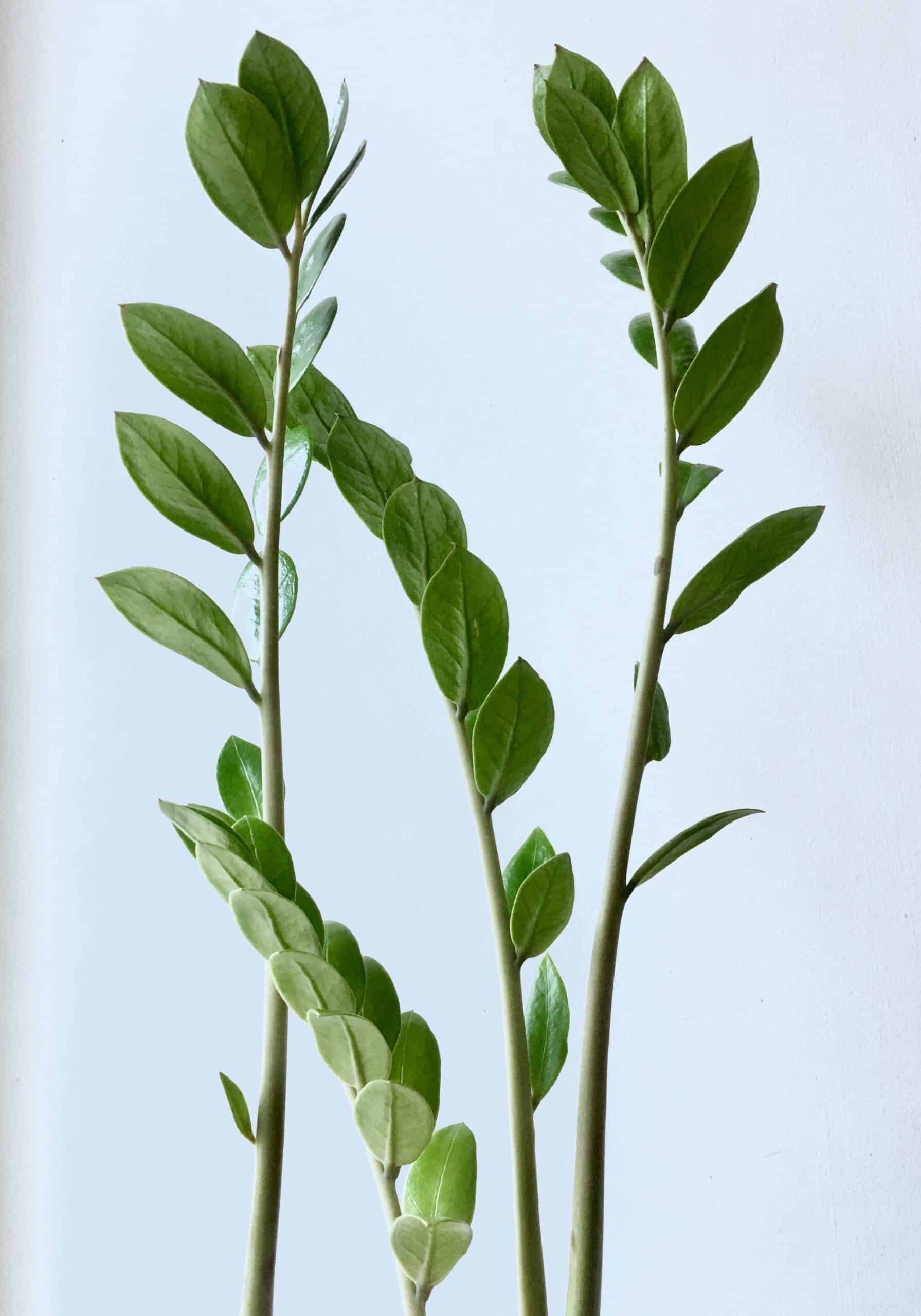Curry leaves are from the subtropical sweet neem (Murraya koenigii) tree. The sweet neem tree is native to the foothills of the Himalayas. Curry leaves are native to Asians and have a rich historic relationship with the people. But thankfully, through migration, the whole world enjoys this wonder herb.
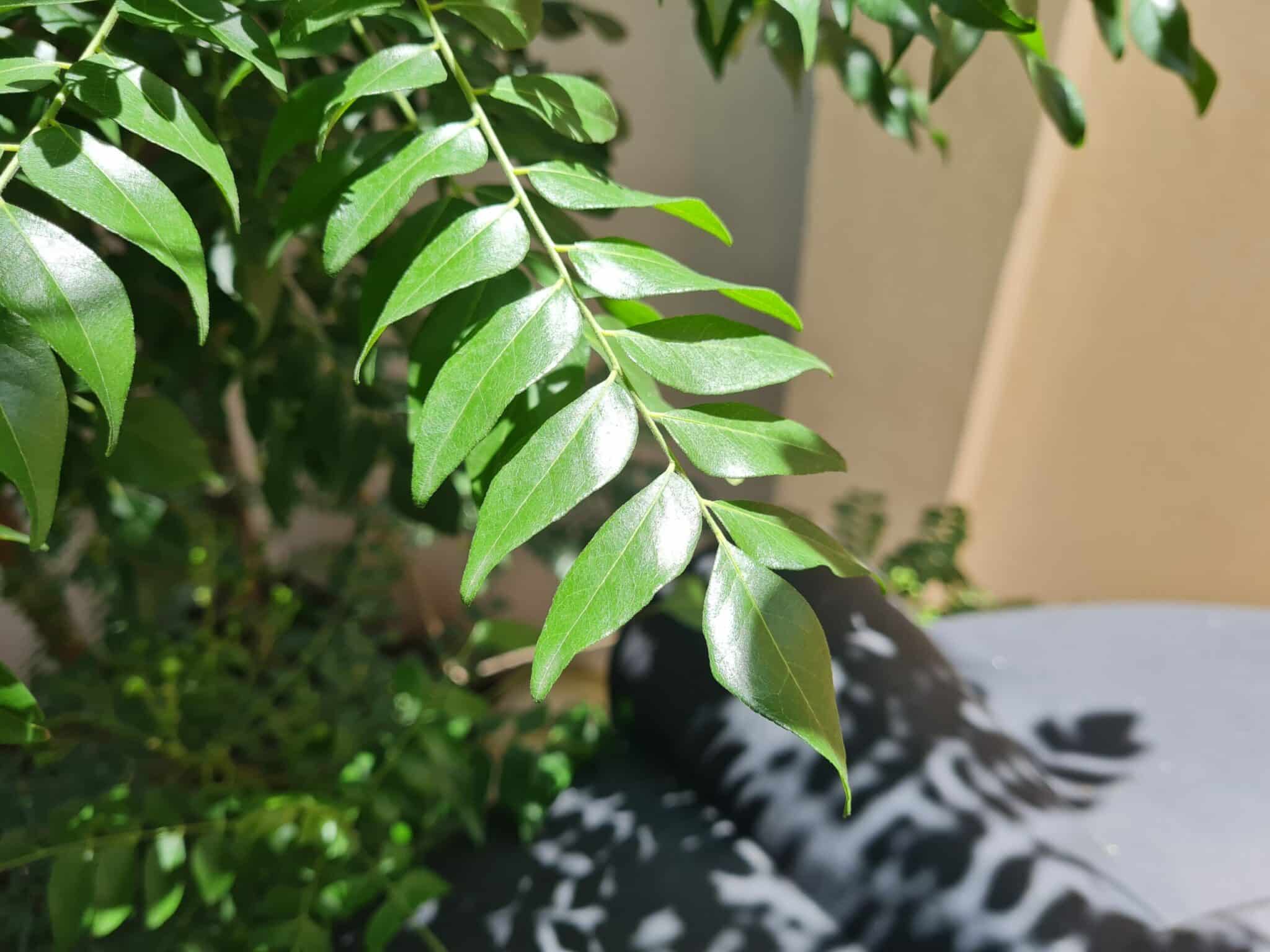
Curry leaves are very aromatic with a flavor that is complex and is often described as very herbal. Along with the herbal flavor, there are distinct citrus notes. The flavor works well with the other spices commonly used in curry dishes.
Benefits of curry leaves
More than acting as a flavorful herb in Asian cooking, curry leaves have many health benefits. This aromatic culinary goodness doesn’t only rely on its citrusy taste and sweet smell. Curry leaves are fortified with carbohydrates, iron, calcium, fiber, phosphorus, and vitamins like vitamin C, vitamin B, vitamin A, and vitamin E.
Since curry leaves are related to the citrus family, they contain some acids (like amino acids) and alkaloids. It is also enriched with folic acid, whose main responsibility is to help the body absorb iron; hence curry leaves help us keep anemia.
Curry leaves contain antioxidants (like linalool, alpha-terpinene, alpha-pinene, murrayanol, caryophyllene, mahanimbine, and myrcene), preventing the oxidation of cholesterol that forms LDL cholesterol (this is the bad type of cholesterol that cause health hazards). As a result, there is an increase in HDL (good cholesterol) in the body. This activity helps protect people from heart diseases and atherosclerosis. Curry leaves have also been known as diabetes fighter because it helps to lower the blood sugar level by affecting the insulin production and activity.
Furthermore, this herb helps improve digestion and calms bowel movement. And it also alters the way your body absorbs fat and is always used in slim teas. For a very effective result, a curry leaf tea can be taken on an empty stomach daily.
Uses of curry leaves
It is almost impossible to talk about Southeast Asian cuisines without mention curry leaves. They are a key ingredient in many recipes but most important in curries, dals, and soups.
Below is a list of recipes with curry leaves:
- Malabar prawn curry
- Moong dal
- Curry leaves kuzhambu
- Moringa leaves stir-fry
- Kerala chicken curry
- Kerala egg curry
- Onion bhaji
- Quick vegetable curry
- Shrimp curry
- Curry leaves rice
Curry leaves are used as a tea to combat many health issues, as listed in the previous section. Also, the leaves can be chewed raw for constipation, dysentery, and diarrhea issues.
Substitute for curry leaves
There are no doubts that curry leaves are indispensable, having learned all the health benefits. However, the shortness of the herb or some legal issues may warrant its substitution. For instance, curry leaf is a restricted item in the U.S because it is known to harbor pests associated with citrus diseases.
Here are some of the best substitutes for curry leaves:
Lemon balm
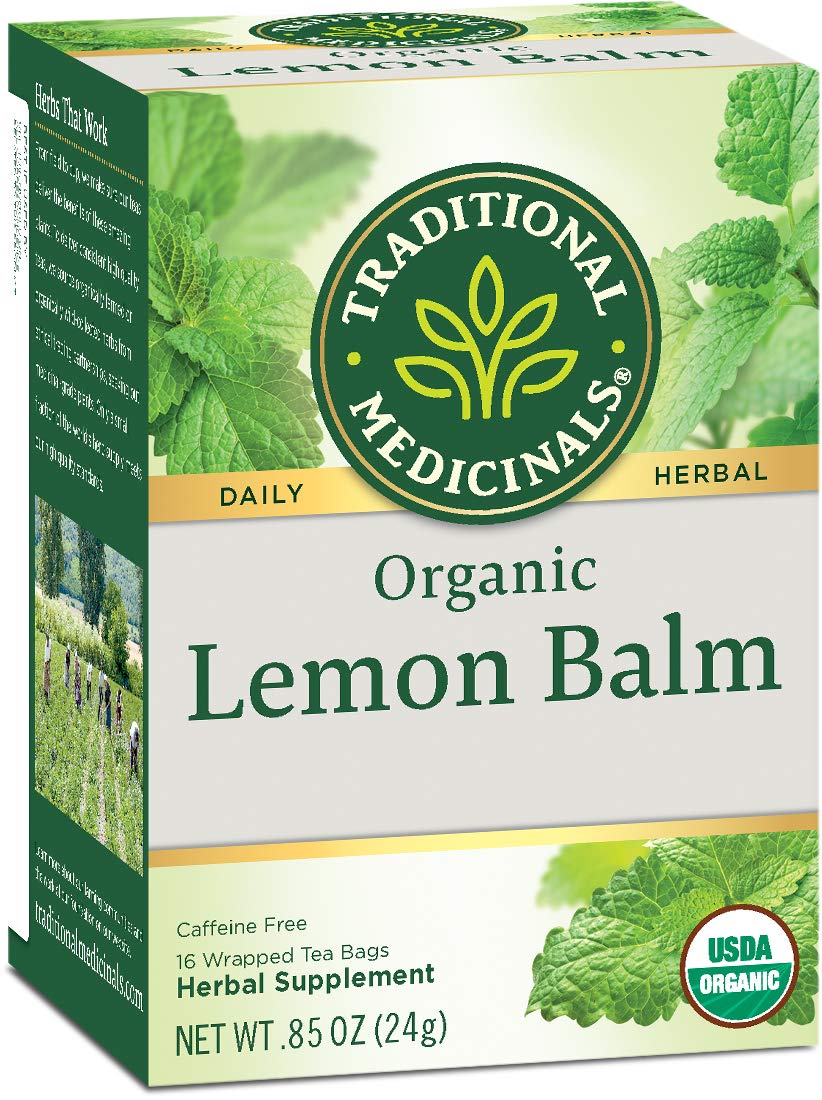
Lemon balm leaves have exactly the same aromatic potentials as curry leaves, hence why it is a great substitute. Plus, it is readily available and may even be growing right in your garden. It has a minty flavor that resembles curry leave’s citrusy flavor. Use 6 lemon balm leaves to replace 9 curry leaves. If you are cooking with the dry type of the herb, remember that the ratio of lemon balm to curry leaves is 2:3, so measure accordingly.
Kaffir lime leaves
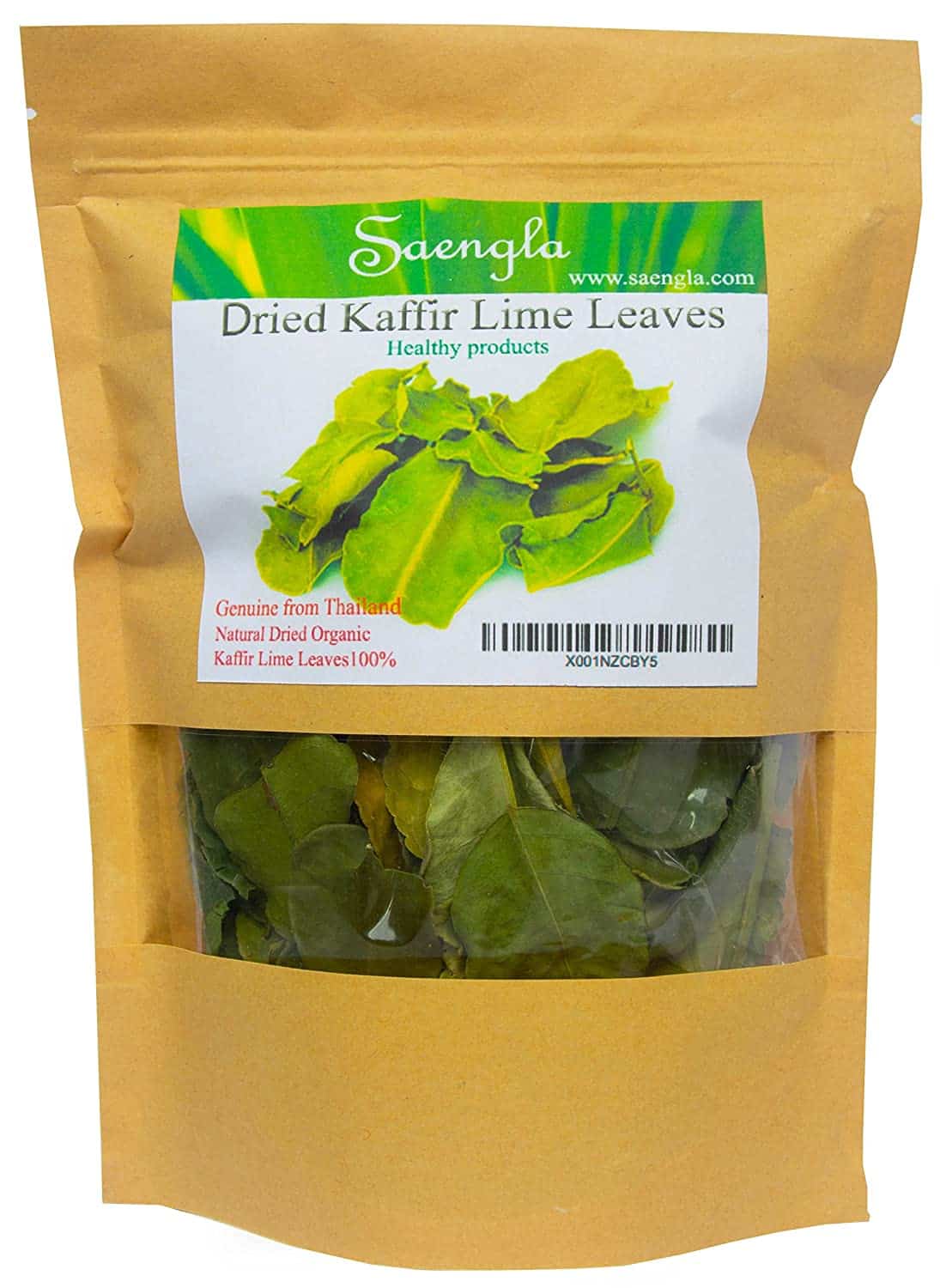
Kaffir and curry leaves have such a similar taste you can’t tell them apart. Kaffir lime leaves offer citrus notes to cooked dishes, and they work wonders for soups, rice, curry, and stir-fries. Use them in soups, steamed meats and fish dishes, Thai and Asian food, stir-frying, and especially in curries. Use the same amount of Kaffir lime leaves as curry leaves required.
Bay leaf
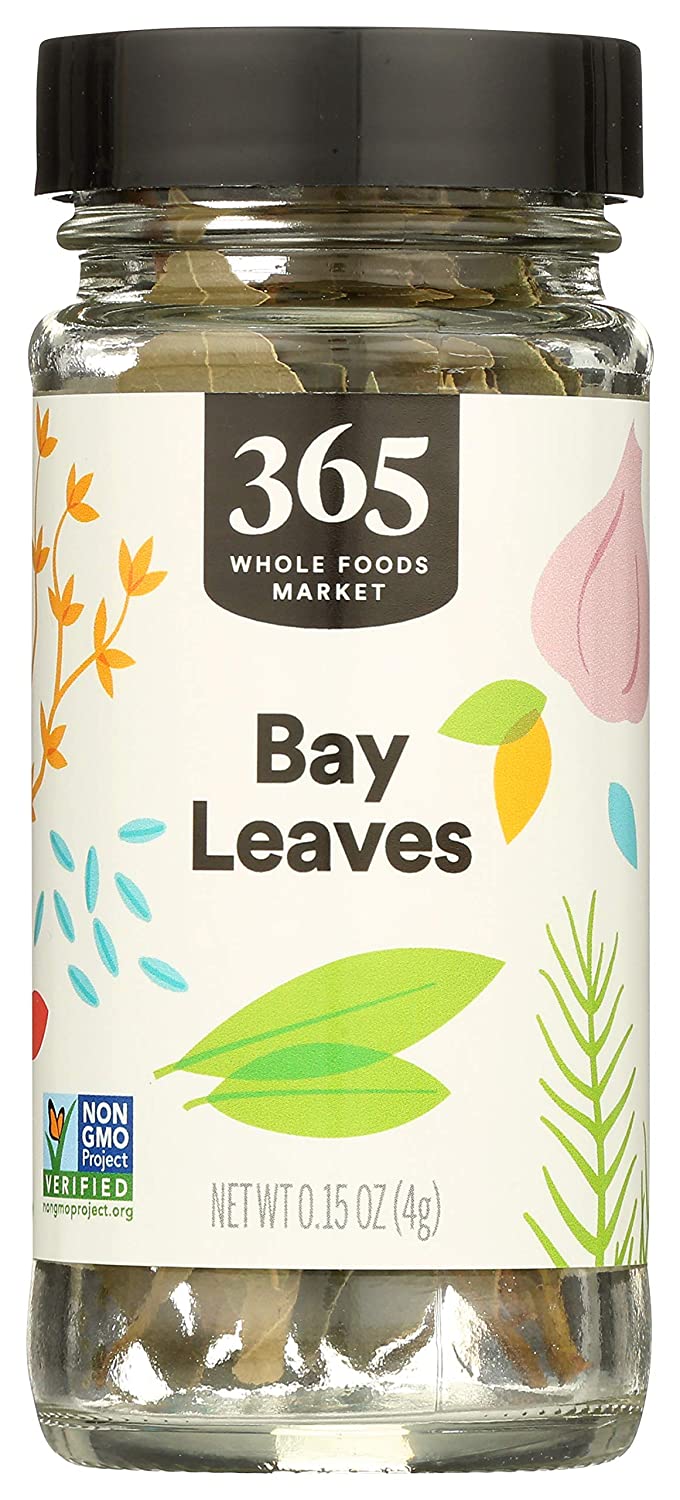
Bay leaf has the same citrus flavor as curry leaf. If your dish requires whole curry leaves, then bay leaves are a great substitute for both leaves with the same basic structure. This one is a bit sweet and can give a peppery, bitter twist to your recipe. Bay leaf, like curry leaf, is a potent medicinal herb and can be used to fight dandruff, muscle and joint pains, and boils. When substituting, use an equal amount of bay leaves as you would curry leaves.
Daun salam leaves
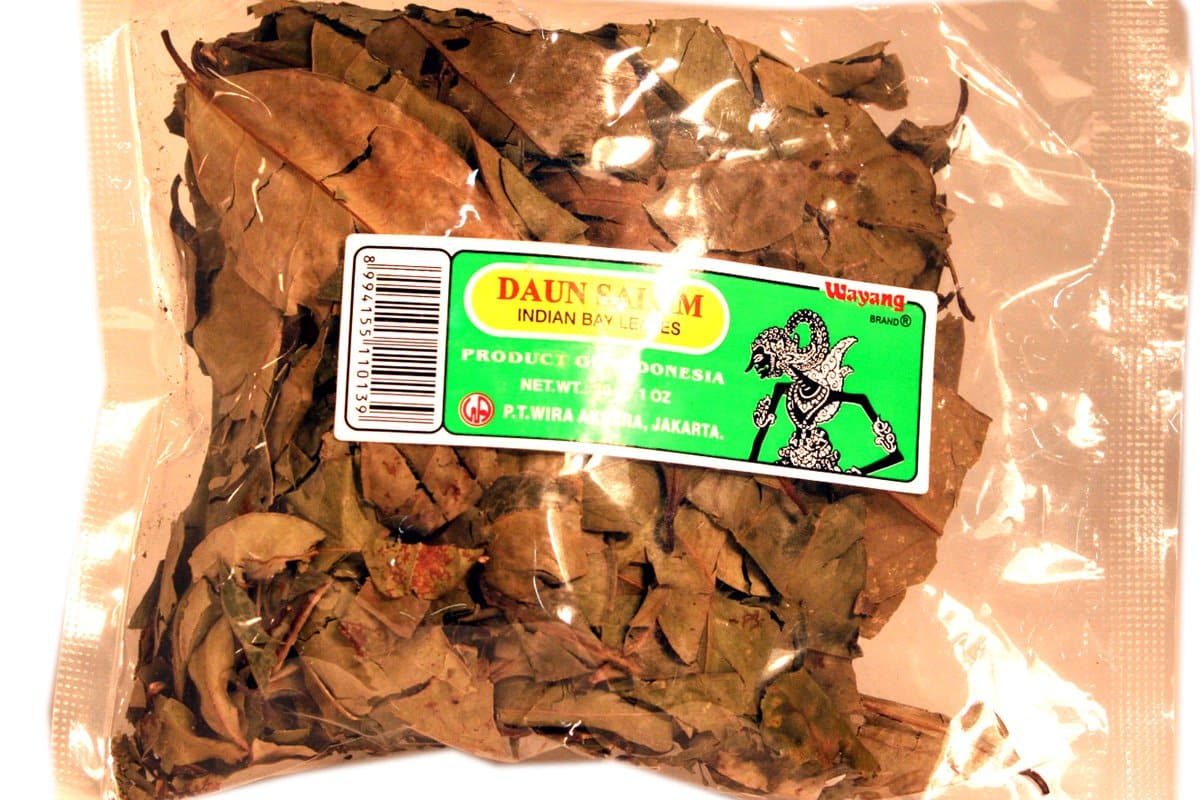
When it comes to curry leaf replacements, this ingredient is not so popular because not many people have heard of it. This condiment works great in meaty dishes and provides a spicy, sweet, minty, earthy taste, much-resembling cinnamon, only milder. Use as much quantity as curry leaves required.
Basil leaf
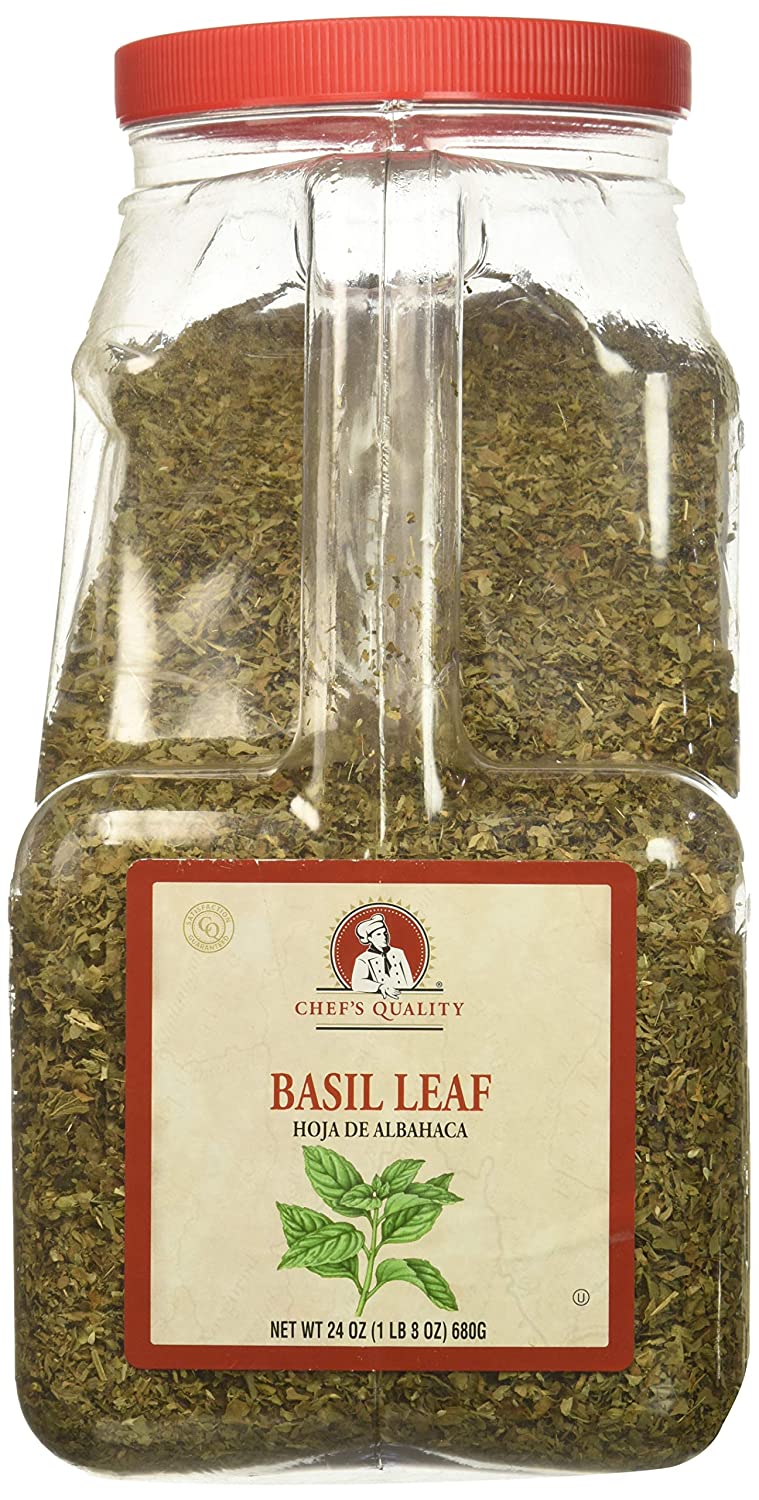
Basil leaves are synonymous with Italian cuisines because of the important roles these leaves play – especially in pesto sauce. But there are of various kinds. Sweet basils are the common ones used in Italian dishes and the most popular. However, there are many other types of basils used for cooking, like lemon-lime basil. Lemon-lime basils look very much like curry leaves and can comfortably replace the citrusy and aromatic curry leaves in any recipe. Use as much amount as you would curry leaves.
Lime zest
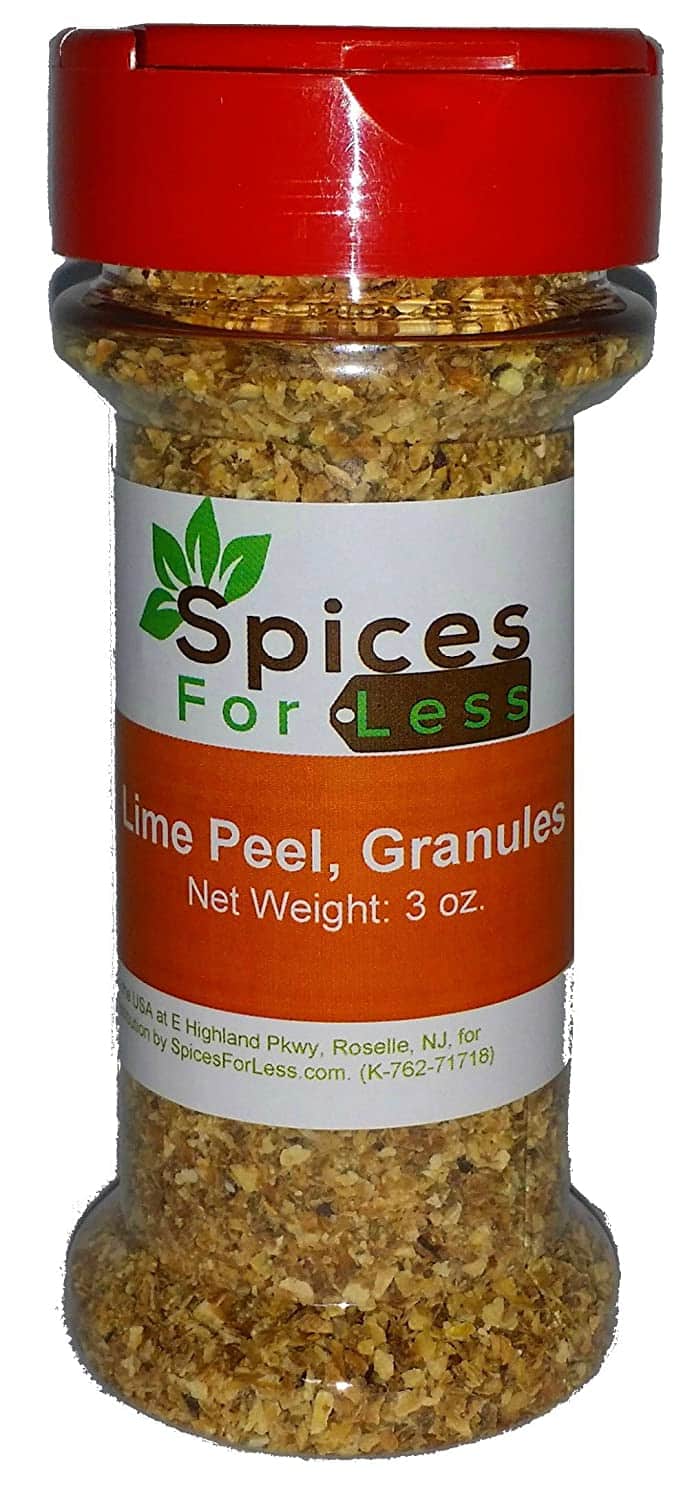
This is a rather desperate substitute for curry leaves. Lime zest will protect the integrity of your recipe in the absence of curry leaves by upholding the citrus note and aroma of the meal. Use the uppermost layer of the rind when zesting. The oils at the top layer will add a pungent and strong flavor that equals those of curry leaves. For measurement, use 1/8 lime zest to replace the required curry leaves (ratio of lime zest to curry leaves is 1:8).
Frequently asked questions (FAQs)
Is curry powder the same as curry leaves?
No. this is a popular misconception. People always think curry powders are made from dried and grounded curry leaves. This is not true. Curry leaves grow from curry leaves the tree, while curry powder is a blend of various seeds and spices developed in Europe to add spices to Indian cuisines.
Can we drink curry leaves juice daily?
Yes, you can. Drink Curry Leaves Tea Every day To Improve Digestion, Prevent Cancer. Drinking curry leaves or kadi Patta tea is great for your overall well-being.
Are curry leaves poisonous?
No, but they may be; this depends on the cultivation process. Agricultural scientists have warned that the commercially cultivated curry leaves are laced with poisonous pesticides that cause cancer and lead to health problems in the long run.
Conclusion
This article contains all the best substitutes for curry leaves (whether to replace the citrusy note or the unique flavor). It is paramount that you select the best one for your need based on your dish’s taste profile and nature. Happy cooking!
